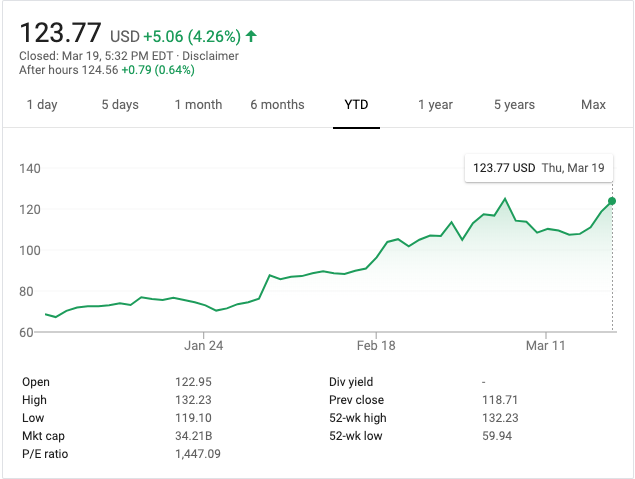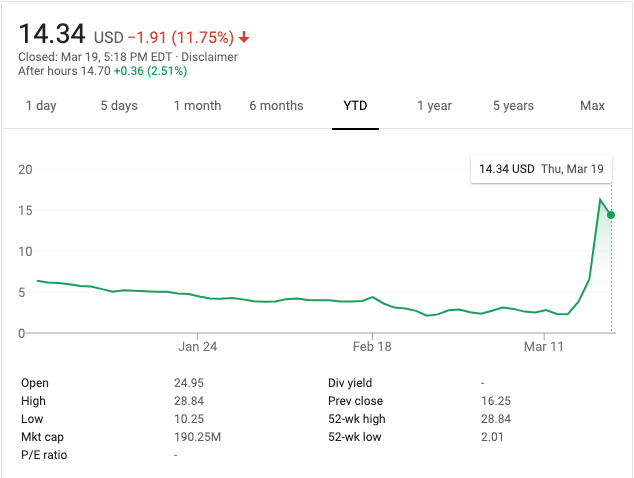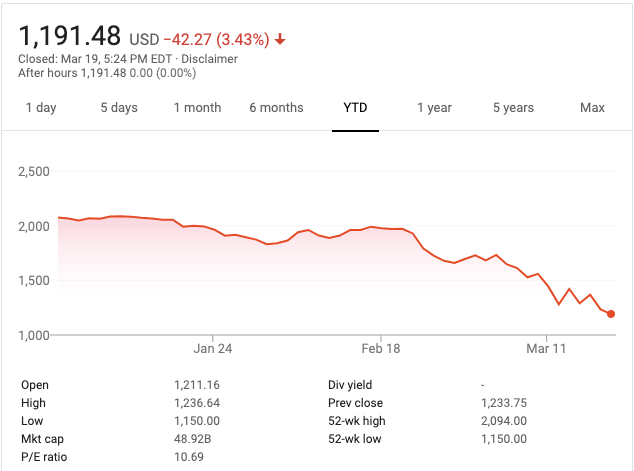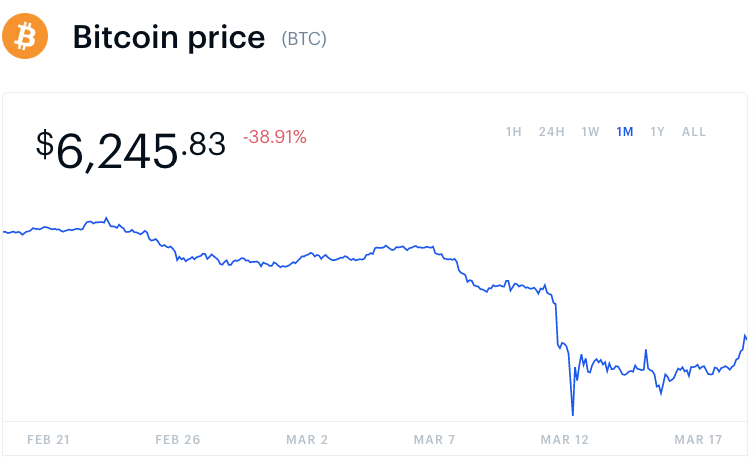Correlation and Market Meltdowns
On the first episode of Howard’s new podcast, his guest said, “in panics, all assets are correlated.” I suspect that is true to some extent.
When bad news hits, I have seen traders sell quickly, get to cash, and then take some time to evaluate the situation before acting on the news. That is true of a company missing its quarter, a sudden management change, and many other forms of bad news. It is also the case when macro events hit the market.
So when a macro event hits the markets, all assets get sold in a “risk off” trade to increase liquidity and buy some time to figure out what is going on.
But soon enough, the market starts to sort through winners and losers. That’s when things stop correlating.
The obvious example is Zoom which is clearly a major beneficiary of this macro event we are in the middle of.

Zoom sold off with the market over the last week and a half but has rebounded nicely and year to date is up something like 75%.
Blue Apron, which the market had left for dead, is another example of a business that will likely do well in this macro environment, or at least it seems that the market thinks so.

Contrast that chart with Bookings, one of the largest (the largest?) online travel businesses, and you can see the lack of correlation.

I believe this downturn will see a greater number of winners and losers than most of the downturns I have lived through. That is because we are already into a pretty meaningful transition from an industrial/physical economy to a knowledge/digital economy and the very nature of this macro event is accelerating that transition in many ways. We just won’t go back to doing some things the same way.
I do plan to go out to my favorite restaurants as soon as I can. But I also plan to fly even less for business when this thing is over. Some things will return to normal. Others won’t.
And that is what the market will sort out over the course of this downturn and is already busy sorting out.
Which takes me, naturally, to crypto. Crypto, to true believers like me, was supposed to be a place to go for safety. We can trust crypto when we can’t trust banks or governments, right?
Wrong.

Bitcoin crashed harder than anything in the first few days of the market selloff. It was down 60% over five days from March 7th to March 12th. But since then it has recovered nicely and is now only down about 30%.
Howard’s guest was right. In panics, all assets are correlated because the market needs to deleverage. Margin loans get called. Leveraged bets go bad. Weak hands fold. And in crypto that happened faster and more furiously than any other asset class. That’s because the market infrastructure is less mature, there are places (largely outside of the US) where you could (and maybe still can) get 100x leverage on a crypto trade, and because these markets are not as liquid and other markets.
But now that the deleveraging has happened, we can look at what crypto has to offer.
Bitcoin is “hard money.” There is a fixed supply of it. 21mm bitcoins to be exact, some of which are gone and are never coming back.
Contrast that to what the central banks are doing right now. The printing presses are melting down there is so much money being printed to stabilize the global economy.
So if you want to hedge your portfolio from that risk, where can you go? Actually a few places. But one of them is Bitcoin. And I suspect that will be where some smart money will go over the next few months, quarters, etc.
But that’s not all that crypto has to offer. The entire decentralized finance stack (fintech 2.0) is being built on Ethereum. And we are seeing decentralized bandwidth, storage, and other critical infrastructure being developed in a number of new protocols.
I’m not going to write an entire crypto thesis here. But my point is that crypto won’t be correlated with the overall market for long. It’s doesn’t even appear to be a week in.






